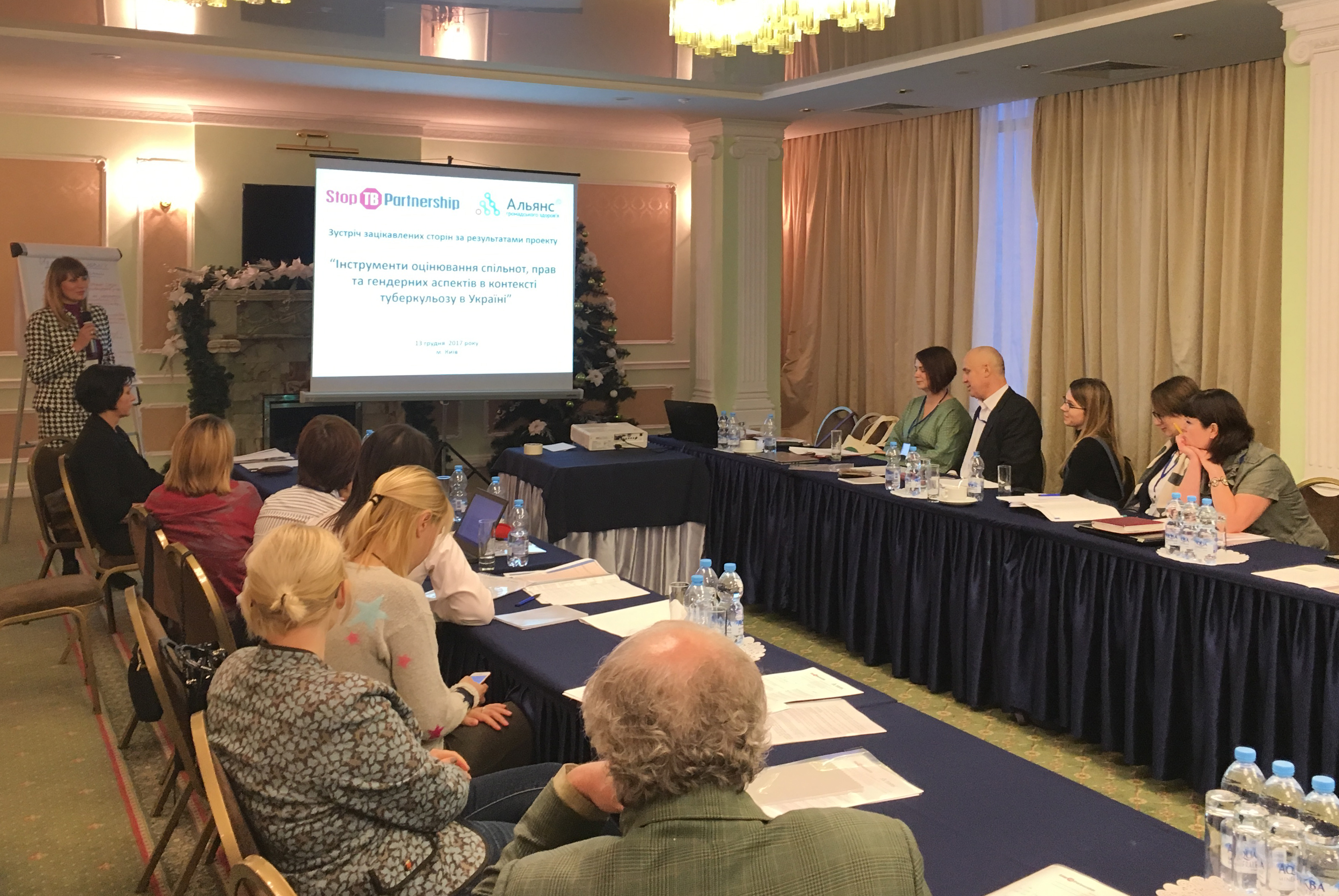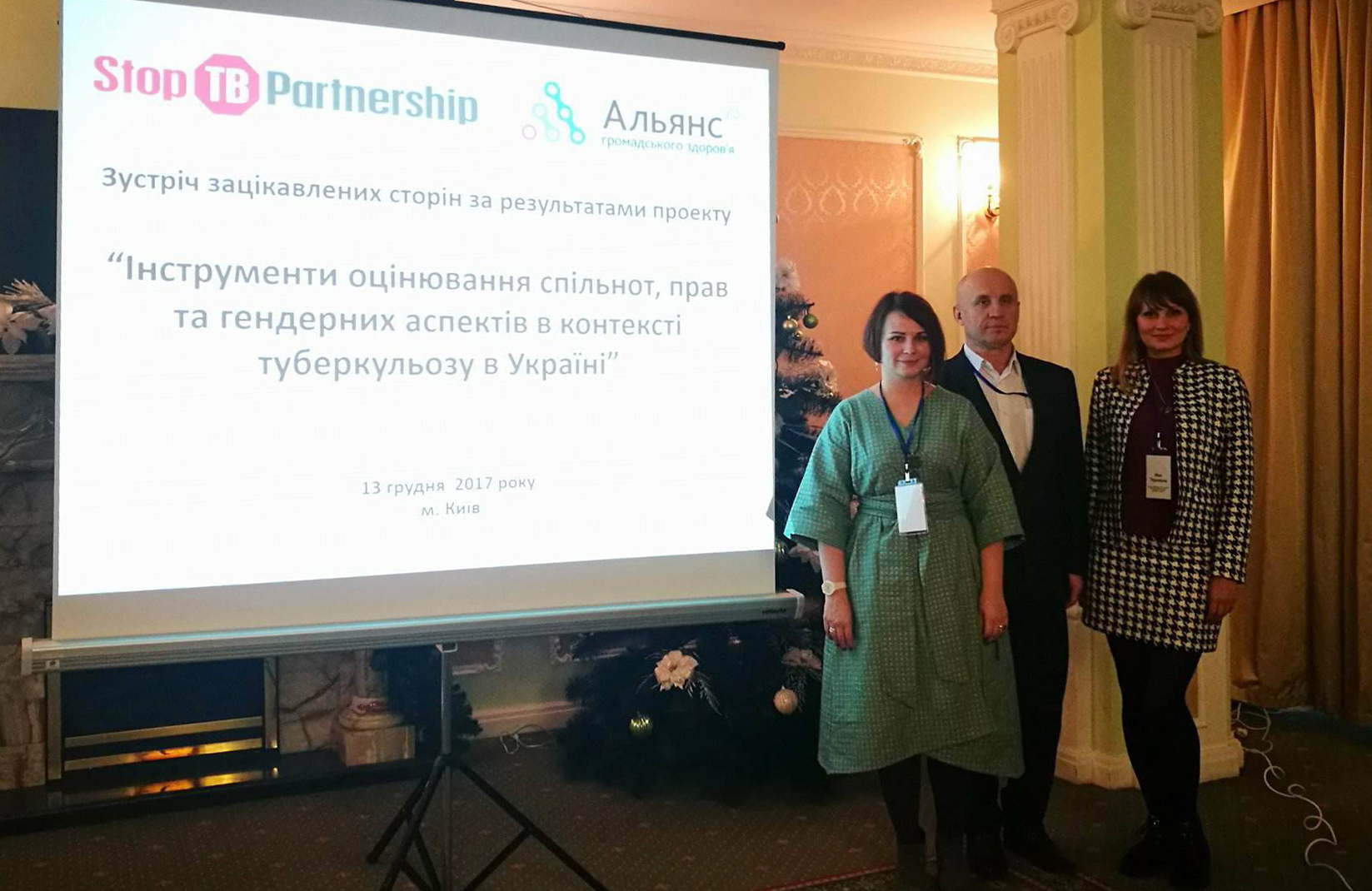The Alliance of Public Health in collaboration with the Stop TB Partnership have implemented project “Tools for Evaluation of Communities, Rights and Gender Aspects in TB Context in Ukraine”. The project involved a study involving a broad circle of stakeholders.
This study is based on tools developed by the Stop TB Partnership, namely: HIV/TB Gender Assessment Tool (Stop TB Partnership, UNAIDS) and Data for Action Framework on Key, Vulnerable and Underserved Populations (Stop TB Partnership). The results of the study provided useful information to strengthen national TB and TB/HIV response.
Socio-cultural norms in many countries may lead to different levels of stigma, discrimination and gender inequalities. Therefore, gender has a critical impact on health seeking and treatment behavior, determining how men, women, transgender people, boys and girls seek health services and bear different kind of barriers. Using gender-based approach to evaluate TB program helped to identify barriers, which will facilitate development of corresponding interventions considering certain risks for men and women, boys and girls, as well as people with other gender identities under TB programs.
Beside desktop review, two focus groups with men and women affected by TB were conducted. Also, the study included in-depth interviews in four regions of Ukraine involving different groups and stakeholders to collect quality information for further analysis and preparation of recommendations on strengthening the national TB response.
Among key findings of qualitative data collection were specific needs of women, men and transgender people with regard to TB diagnostics and treatment. For example, participants of the focus groups stressed the need of separation of “gender flows”, i. e. separation of queues of patients wishing to do sputum tests, providing wards for separated stay of people with transgender identity receiving inpatient treatment; providing gender-sensitive physiological and hygienic conditions at healthcare facilities, including having separate toilet and shower rooms for men and women or equipping such rooms with soundproof partitions; creating psychologically comfortable conditions for diagnostics, for example, setting up a screen behind which women may comfortably strip to the waist, etc. Considering the significant number of gender-related needs of patients, outpatient mode of treatment appears to be the best prepared to satisfy them without placing a substantial additional financial and administrative burden on the healthcare system.

The second tool was applied with the focus on the key, vulnerable and underserved populations that face an increased risk of development of TB because of biologic and behavioural factors. Such populations differ in different countries, but they are always people that are likely not reached with health services and suffer severely from TB. The project reflected existing approaches to key populations, which will ensure healthcare system’s taking account of all populations facing increased risk. Carefully selected factors influencing the risk of disease in different key populations allowed preparing an exhaustive list of such populations. It is suggested to revise the tool on the annual basis and update it on the national and regional levels as required. It may also be used by NGOs as a strong advocacy tool. The Alliance for Public Health will, in turn, recommend to approve it on the national level, and a representative of the Public Health Center of the MoH of Ukraine noted that the Center fully agreed with the conclusions of the study and would take them into consideration and advocate the changes together with the civil society.
During implementation of the project, two stakeholder meetings were conducted to introduce the evaluation tools and enable public consultations. The broad circle of stakeholders invited to the meetings contributed to the evaluation through sharing their experience and expertise and participation in development and implementation of measures based on recommendations of the study.
Strategic insights and results of the study on gender barriers and key populations in the context of TB conducted in Ukraine by Alliance for Public Health in collaboration with Stop TB Partnership will be incorporated in the national TB regulations. Presentation of a detailed study report is scheduled for January 2018.

